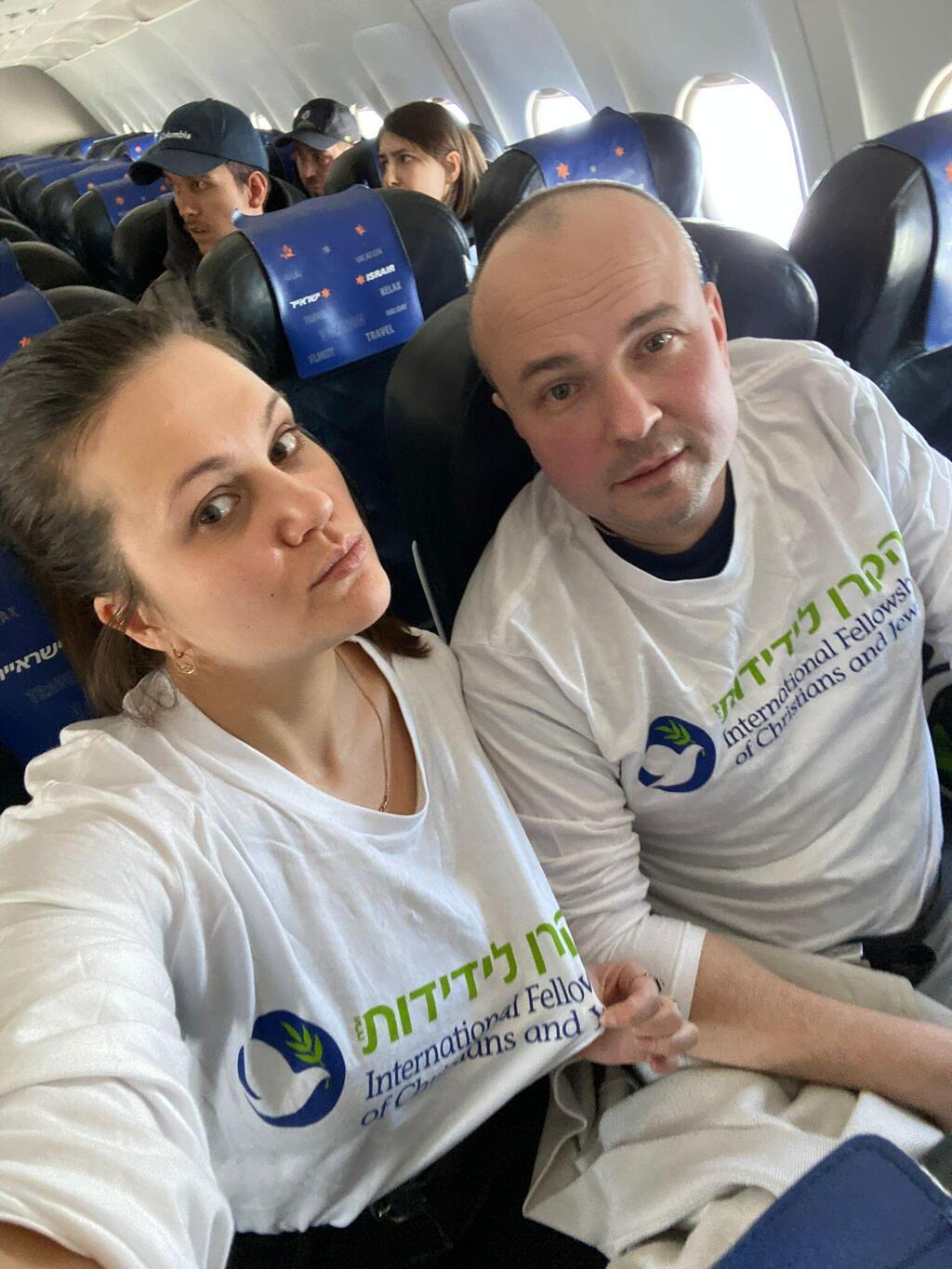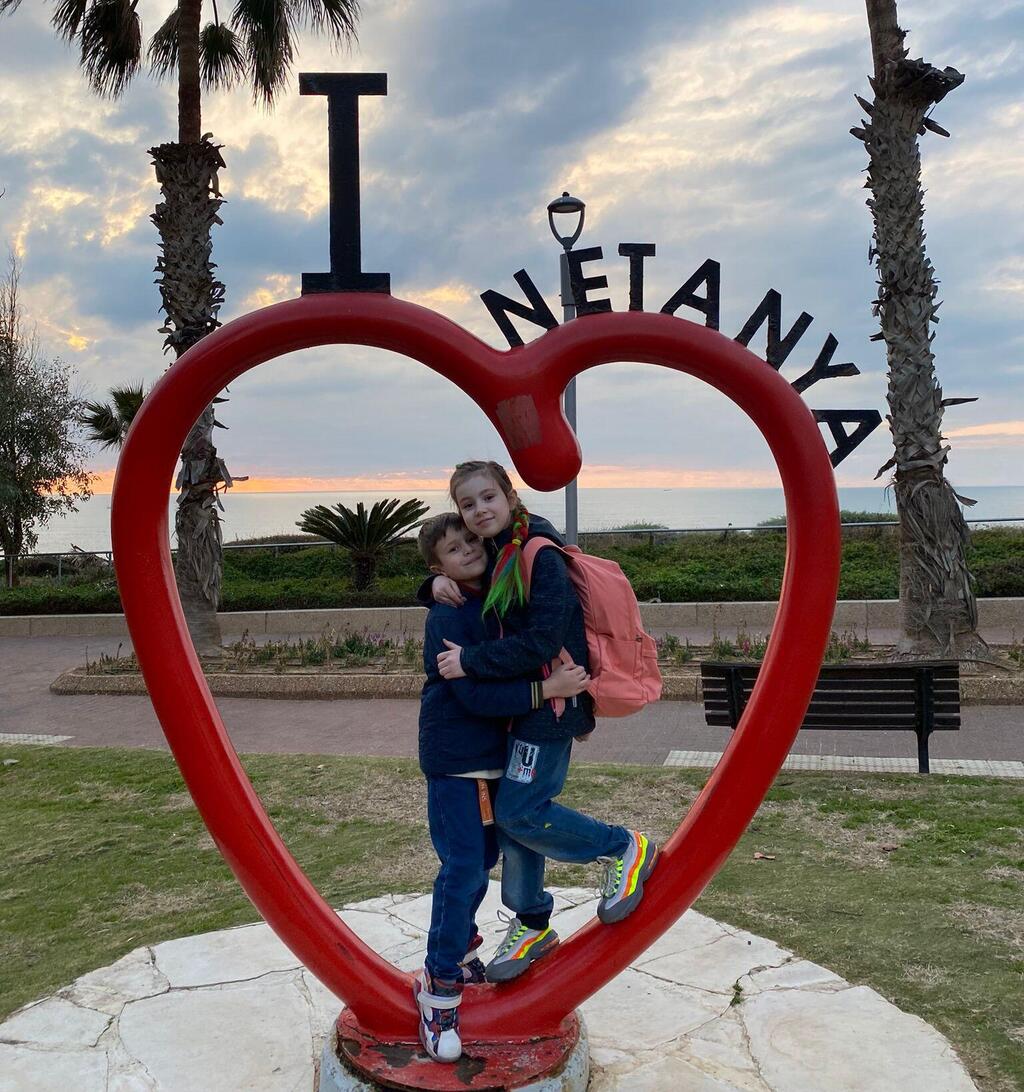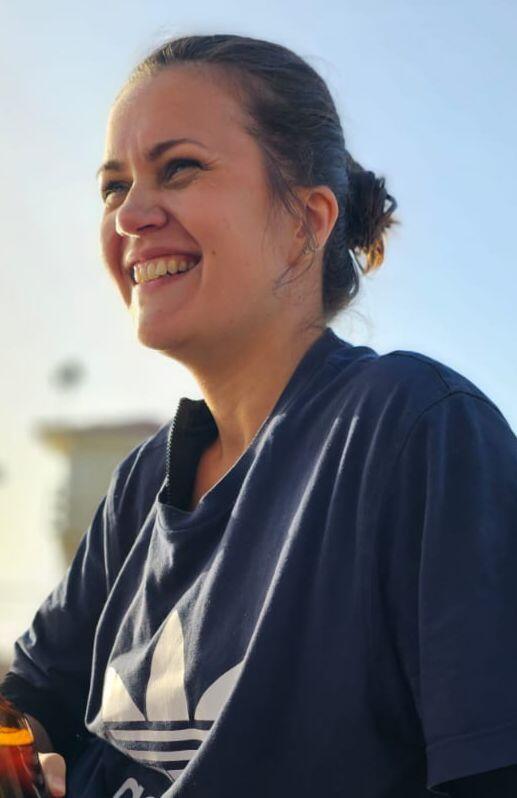Getting your Trinity Audio player ready...
Three years ago, Ella Babich and her husband Vladislav planned to make Aliyah. This was before the war in Ukraine, before the political turmoil in Israel and before the COVID-19 pandemic.

However, life has its own way. "My mother-in-law really didn't want us to leave, and my husband didn't want to upset her, so we decided to wait until she changed her mind. And then she fell ill, and the pandemic hit and we all started working from home, and of course, there was the war."
Babich, 32, began gathering documents for the entire family. "It was quite complicated, mainly due to our geographical situation because we don't belong to Ukraine, and we're not from Moldova either. The current political situation, as you may know, is very complex."
'I immediately felt that I had done the right thing'
Babich lived in Transnistria, also known as the "Moldovan Republic of Pridnestrovie." It lies along a narrow strip on the eastern bank of the Dniester River, facing eastern Moldova. To the east, it borders Ukraine. While Transnistria and its institutions are not officially recognized by the international community, residents can freely enter and exit the territory using Moldovan passports.
3 View gallery


The Babich couple on the day of Aliyah. came from an internationally problematic region
In February 2023, the family took a flight organized by the International Fellowship of Christians and Jews to Chisinau, and two and a half hours later, they landed in Israel. "As soon as we disembarked, I immediately felt that I had done the right thing. Not that I wasn't aware of the challenges facing us; we were well-prepared and even learned some Hebrew before our Aliyah. But the atmosphere, the hustle, the bustle – it was precisely what I wanted," she recounts.
They arrived in Netanya and rented an apartment together – Ella, Vladislav, their two children aged 7 and 9, and the elderly grandparents. "At some point, my in-laws wanted to move to their own apartment, but they are dealing with health issues, and I am taking care of them, so it suits all of us," she says. She recalls that the day after their arrival, she went straight to the market to do some grocery shopping. "I wanted to hear the language, to feel its melody in my ears."
She says that she felt Israeli even before coming here, and since then, that feeling has grown with each passing day. "I love the chaos, the openness, the noise and the natural optimism of the people. The lack of boundaries, for better or worse," she says with a smile. "There are people here from all over the world, and I love it. My daughter met a new classmate from Brazil, and they immediately bonded. Without understanding each other, but that's the beauty of it here."
She admits that her husband, who works in construction, faces greater language barriers, but he's practicing, while the elderly parents feel completely disconnected. "They are both ill and don't understand the language, but still, we're all together, and that's what matters in the end," she says.
Ella works in a deli and she mentions that she loves the Israeli vibe. "When they come to me, even if I don't understand them word for word, their smiles and openness make me smile too. I see the goodness in everything," she says.
'To think positively and see the good'
Since her arrival in Israel, Babich says she sees miracles every day, and she wholeheartedly believes it's Israel. "I'm not talking on a spiritual or religious level, but genuine miracles. Things that have no other explanation," she emphasizes. "For instance, two months after we arrived, our washing machine broke down, and then suddenly, the International Fellowship of Christians and Jews fered us a washing machine. And that's just a small example of the good that keeps happening to me and my family all the time."
She mentions that she loves that life has fallen into a routine, just like all Israelis, and she tells all Olim that there's no need to fear anything. "You have to think positively and see the good. The achievements of this country are immeasurable; it's a wonderful place."
As Rosh Hashanah approaches, she wishes the country peace. "May we learn to live together and appreciate one another. Our unity is our strength," she concludes.
Since the beginning of the Russia-Ukraine war in February 2022, some 18,000 new immigrants have arrived in Israel from Ukraine with the assistance of the Jewish Agency and the Aliyah and Integration Ministry as part of Operation Homecoming.
"When they come to me, even if I don't understand them word for word, their smiles and openness make me smile too. I see the goodness in everything"
Within 24 hours of the outbreak of hostilities, the Jewish Agency established 18 emergency centers in Ukraine and neighboring countries in collaboration with the International Fellowship of Christians and Jews. These centers were established to accommodate the refugees who fled the fighting, providing them with shelter, emotional support and crucial medical care until their evacuation to Israel via rescue flights.
Jewish Agency Chairman Maj. Gen. (res.) Doron Almog said, "The operation to rescue Ukrainian Jewry symbolizes the mutual commitment among the Jewish people. Jewish communities, led by the Jewish Federations of North America, the Genesis Philanthropy Group and Friends of Israel, rallied together to support the Aliyah effort. Simultaneously, hundreds of volunteers from Israel traveled to assist in the emergency centers and tend to the needs of the refugees."
First published: 11:30, 09.15.23




